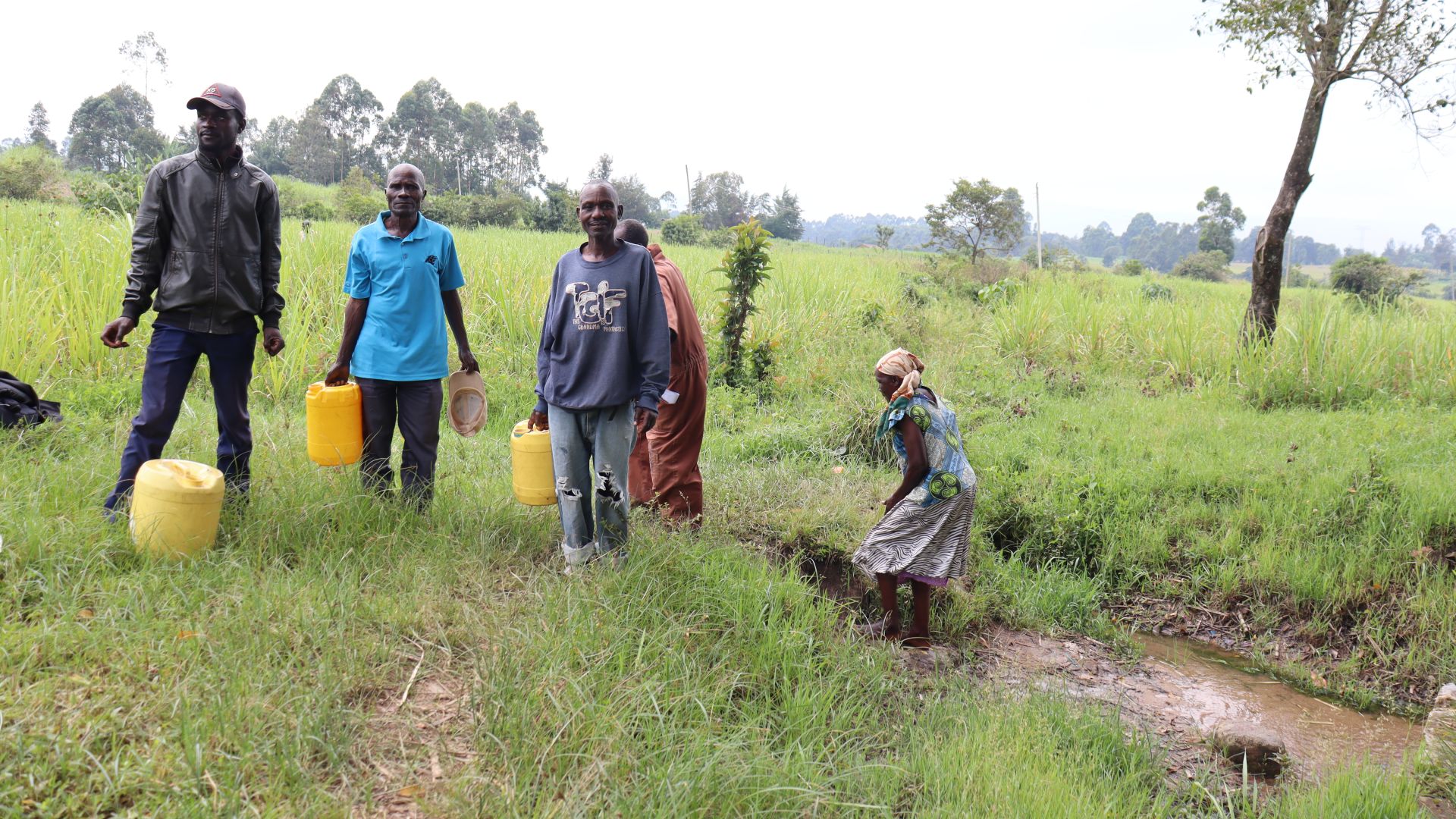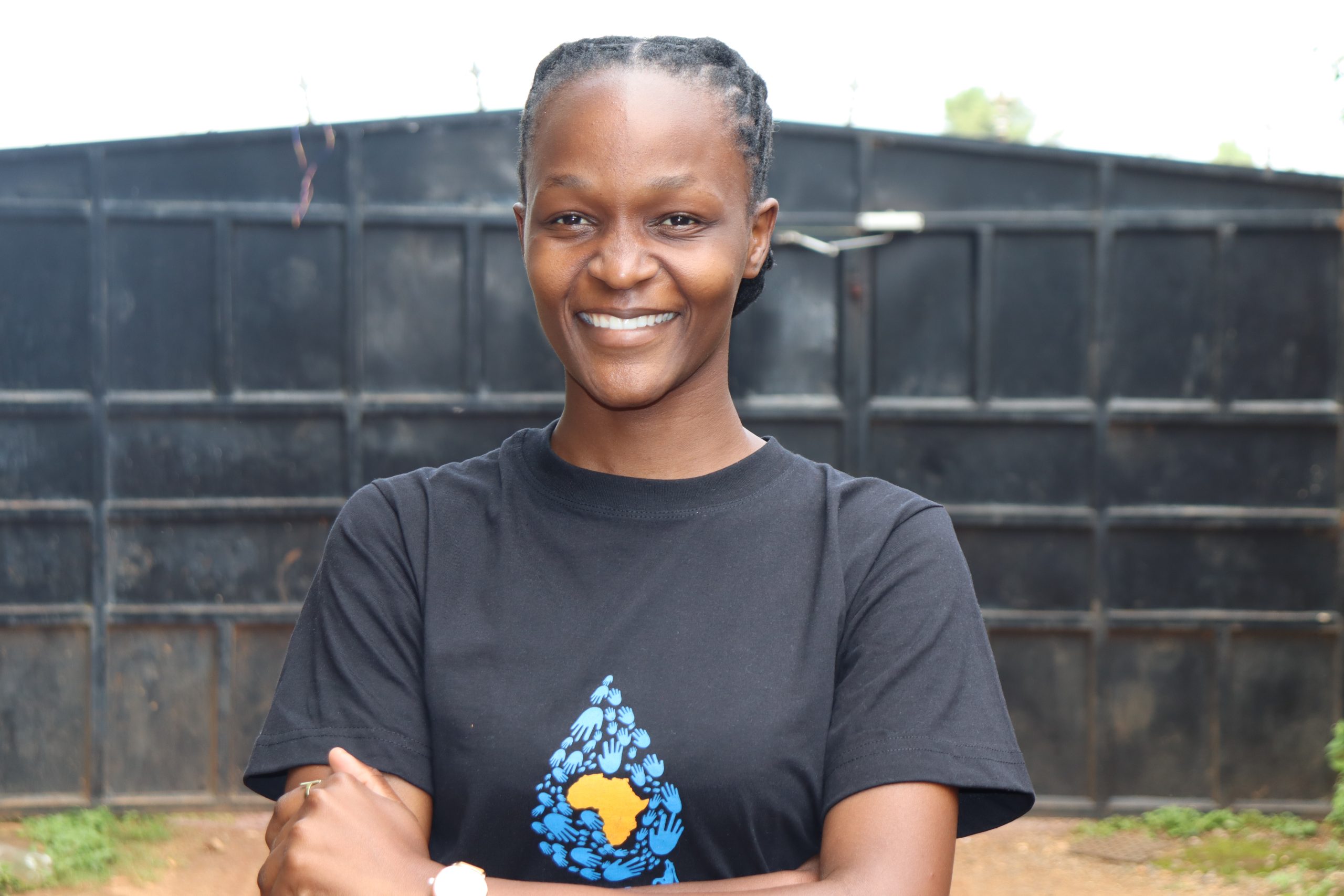In the Murram Community, 200 people rely on the Ben Chikamai Spring. But instead of providing relief, this water source brings hardship and conflict due to its state of disrepair.
Field Officer Mildred Mboha described the effects of the spring: "There has been [a] contraction of waterborne diseases amongst the community members. This increases [the] health burden on health care as a lot of financial resources are directed to the treatment of [the] waterborne diseases, reducing the productivity rate of individuals."

The spring in need of repair.
For 51-year-old Joseph Wanamu, these community-wide struggles are deeply personal. He has watched unsafe water threaten his family’s health repeatedly.

Joseph Wanamu
He shared a recent experience, "Recently, my grandchild was diagnosed with typhoid. She drank untreated water, which affected her health, making her to be hospitalised. The sickness of my grandchild was emotionally and financially draining. Seeing her cry helplessly was so emotional. [I] hope that going forward, people will have access to clean, safe, and reliable water."
His grandchild’s suffering was not an isolated case, but part of a larger pattern. Illness from contaminated water affects the entire community, draining resources and reducing the ability of families to thrive.
"Water-related illnesses lead to reduced productivity as one lies helpless in a sick bed, hoping to recover and get back to [a] normal state, hence emotional discomfort. It leads to increased burden on health care as more frequent hospital visits consume resources," he added.

The water crisis's financial and physical toll on each family and individual is high. Illness affects more than health — it impacts Joseph’s ability to provide.
"As the head of my family and a large family to be specific, my role as father, husband, and grandfather is so demanding. It requires an aggressive mindset. Going out to fend for my family is not an option. Being a mechanic in a sugarcane company, my role is so engaging, so when I'm not spending so much of my day fetching water, I would be out there in my workplace ensuring that all machinery (tractors and trailers) are operational by doing thorough maintenance."
The spring’s problems reach beyond health. Long waits at the waterpoint fuel tensions that erode community unity.
Joseph recalled one incident vividly: "There was this past incident where my child was sent for water during lunch hour. On getting to the waterpoint, she found two women quarrelling at the waterpoint, in the process of the fight, my child was hit by mistake by one of the women. She came back home, shedding tears and with no water. I felt so sorry for my child and even regretted sending her alone to the spring."

Community members wait to collect water.
Joseph and the rest of the Murram Community need a solution. Repairing their spring will protect their health and renew their harmony.
"Water is life and a basic necessity. Therefore, everyone should have access to safe, clean, and reliable water that has no negative health impacts on an individual, family, or community at large," Joseph concluded.
Steps Toward a Solution
Our technical experts worked with the local community to identify the most effective solution to their water crisis. They decided to safeguard the existing flowing spring.
Spring Protection
Springs are natural water sources that originate from deep underground. As water travels through various layers of the earth, it undergoes a natural filtration process, making it cleaner and safer to drink. To protect these spring sources from contamination, we construct a waterproof cement structure around layers of clay, stone, and soil. This design channels the spring water through a discharge pipe, facilitating easier, faster, and cleaner water collection.
Chlorine Dispenser
As an extra measure towards water quality safety, uniquely engineered chlorine dispensers are installed at all of our spring protection projects so community members can treat their water with pre-measured doses of chlorine. The chlorine treats any possible contamination and stays active for two to three days, ensuring water stays safe to use even when stored at home. Chlorine delivery and maintenance of the dispensers are part of our ongoing community support.
Community Education & Ownership
Hygiene and sanitation training are integral to our water projects. Training is tailored to each community's specific needs and includes key topics such as proper water handling, improved hygiene practices, disease transmission prevention, and care of the new water point. Safe water and improved hygiene habits foster a healthier future for everyone in the community. Encouraged and supported by the guidance of our team, a water user committee representative of the community's diverse members assumes responsibility for maintaining the water point, often gathering fees to ensure its upkeep.

 Protected Spring
Protected Spring
 Rehabilitation Project
Rehabilitation Project

















